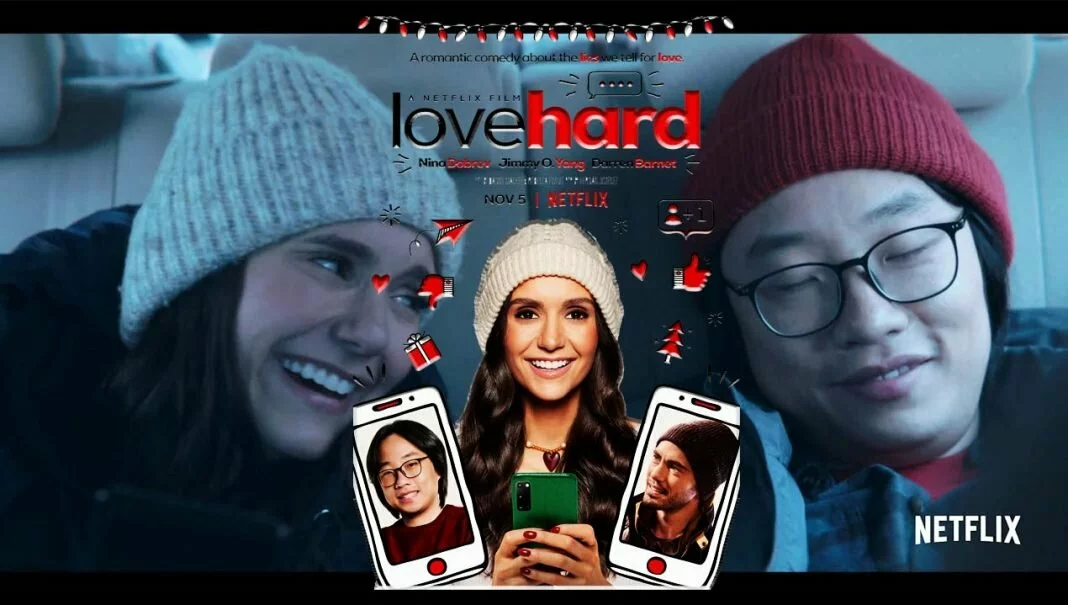A stable solid is wasted in a Netflix rom-com that epitomizes why the complete style has been zombified by relationship apps and streaming platforms.
It’s no secret that romantic comedies have a serious expertise downside. Around the identical time multiplexes turned too clogged with Marvel sequels to make room for “the subsequent ‘Notting Hill,’ fashionable love started migrating to the decidedly un-cinematic realm of relationship apps. The ubiquity of Tinder and its ilk began to confront rom-coms with a few of the similar logistical complications which have been haunting slasher films for the final twenty years (to say nothing of Twitter, which arguably presents a extra existential risk to a convention whose outmoded tropes and petrified gender dynamics usually require a level of disbelief that may’t survive the slaughterhouse of on-line discourse).
For higher or worse, the world is altering sooner than Richard Curtis might ever hope to maintain up with. And although the digital age might sound completely suited to candied tales about individuals who assemble Jenga towers of lies with a purpose to make somebody like them, the uncommon films that attempt to Frankenstein collectively Twenty first-century rom-coms from the rubble of Twentieth-century screenplays have a tendency to take action with all of the grace of a mad scientist or a large content material farm, as a result of these films now are usually second-tier Netflix junk like “The Kissing Booth.” Or Hernán Jiménez’s “Love Hard,” which leverages home-for-the-holidays nostalgia in a flimsy bid to separate the distinction between “Catfish” and “Cyrano de Bergerac.”
Before we go any additional, a fast phrase about that mishmash of a title. Although it sounds just like the identify of the very best Leslie Nielsen parody by no means made, “Love Hard” really refers back to the two most controversial works of Jesus-adjacent artwork since Andres Serrano’s 1987 “Piss Christ,” by which in fact I imply “Love, Actually” and “Die Hard.” Both of these movies play an important function on this one, in as far as the DM-centric romance that develops between hacky L.A. relationship columnist Natalie Bauer (Nina Dobrev) and her “Flirt Alert” match Josh is sparked by a cutesy debate over the higher Christmas film, which in fact results in an inevitable sidebar about whether or not “Die Hard” is a Christmas film in any respect. It’s scintillating stuff, and the right vibe examine for a really on-line rom-com that could not be extra social media savvy if it had been written by Sen. Richard “will you commit to ending Finsta” Blumenthal himself (precise script credit score belongs to Rebecca Ewing and Danny Mackey). It’s a Christmas miracle this film ends earlier than Natalie and Josh can get right into a screaming match about whether or not that gown is gold or blue.
Indeed, it seems this star-crossed duo have some extra urgent beef with one another. Single, orphaned, and supposedly incapable of discovering an honest man in all of Los Angeles even supposing she’s a pleasant and lovely 30-year-old whose job requires her so far as many individuals as attainable, Natalie goes all-in on the lovable man she meets on-line. He appears like a scruffier model of licensed hottie Paxton Hall-Yoshida from the Netflix present “Never Have I Ever,” and each time she talks to him by way of textual content or on the telephone, Natalie’s life melts right into a montage. When Natalie decides to fly to Lake Placid and shock her new crush for Christmas, her editor (Matty Finochio) licks his lips on the potential pageviews {that a} column in regards to the journey would possibly encourage; that starvation for content material is the one semi-realistic side of a office that so hilariously glamorizes fashionable journalism it makes “Sex and the City” seem like “All the President’s Men.”
Alas, when Natalie shivers her manner into upstate New York and knocks on Josh’s door, our woman is aghast to find that she’s been duped by a dorky introvert (an endearing Jimmy O. Yang) who lives together with his mother and father, works at his dad’s winter attire retailer, and goals of launching his personal scented candle enterprise in the future. The solely silver lining is that Josh really is aware of the Paxton Hall-Yoshida look-alike whose images he used on his relationship profile – it is his childhood buddy Tag (performed by Paxton Yall-Yoshida look-alike actor Darren Barnet) who lives down the road – and Josh agrees to set Natalie up with him if she’ll keep together with his household for Christmas and faux to be his girlfriend.
It would not make any sense that Natalie would want further assist catching Tag’s eye, or that she would really feel snug sleeping in the identical room as some random web boy who’s already betrayed her belief, however rom-com logic is a hell of a drug. At least this film is persistently dedicated to the archaic concept that love will be measured by the mere accumulation of shared commonalities and personal trivia; Natalie tries to seduce the super-crunchy Tag by pretending that she additionally loves rock-climbing and Henry David Thoreau, whereas Josh tries win her over by noticing that she has 9 totally different smiles or no matter (it helps that Yang’s unassuming efficiency by no means makes you’re feeling like Josh is cynically working the “nice guy” angle). There’s additionally a sure transference of sins that ranges the very PG taking part in subject between Josh and Natalie, in that she turns into the extra energetic liar as soon as he cons her throughout the nation.
The dynamic between these characters is as easy and timeless because the dramatic query that may outline their future collectively: Is bodily attraction extra necessary than private connection? In the context of “Love Hard,” that query additionally calls for an instantaneous follow-up: Did I miss a scene the place a deadly virus someway made it in order that Josh and Tag are the one single males left on Earth? Natalie could also be anxious for somebody to kiss underneath the mistletoe, and it goes with out saying that girls are unfairly burdened with sure social and organic pressures to cool down earlier than “it’s too late,” however “Love Hard” genuinely appears to suppose that its heroine has no selection however to spend the remainder of her life with one in all these two boys. The concept of, say, salvaging a platonic friendship with Josh from this warped state of affairs is unthinkable to a film that nearly appears as allergic to breaking from style conference as Natalie is to kiwis (a factoid that is talked about twice earlier than it ends in probably the most horrifyingly swollen face in any rom-com this facet of “Hitch”).
There are moments of palpable sweetness between Josh and Natalie, all of that are owed to the laidback charisma of the actors who play them, and a few of which even wrest a morsel of appeal from the jaws of cliché (e.g. an improvised duet of “Baby it’s Cold Outside” that sanitizes the track’s rapey undertones). But “Love Hard” is simply too lazy to help the efforts of its solid, a likable group whose performances are nonetheless as cringeworthy as watching individuals lean into belief falls with nobody round to catch them. Takayo Fischer is sport for time as Josh’s saucy grandma, however her function is flattened underneath such ridiculously broad sitcom beats that precise laughs are out of the query. An analogous destiny befalls James Saito’s affectionate flip as Josh’s dad, although Harry Shum Jr. bears the worst of it for sticking his neck out as Josh’s narcissistic cartoon of an older brother.
These actors, Shum most of all, are main outliers in a film that is not “bad” a lot because it makes no legible effort to be good. Like most of Netflix’s seasonal meeting line of yuletide fare, “Love Hard” is each too well-cast for the Hallmark Channel and too half-assed for film theaters. It’s likewise adrift between rom-com nostalgia, reckoning with the anxieties of relationship within the digital age, and easily hitting sufficient knowledge factors to provide the algorithm what it needs for Christmas. American rom-coms have turn into a zombie style, and brainless streaming content material like “Love Hard” – from its tech-driven narrative, nostalgic plotting, and tossed-off manufacturing – epitomizes why they refuse to die or be reborn.


















